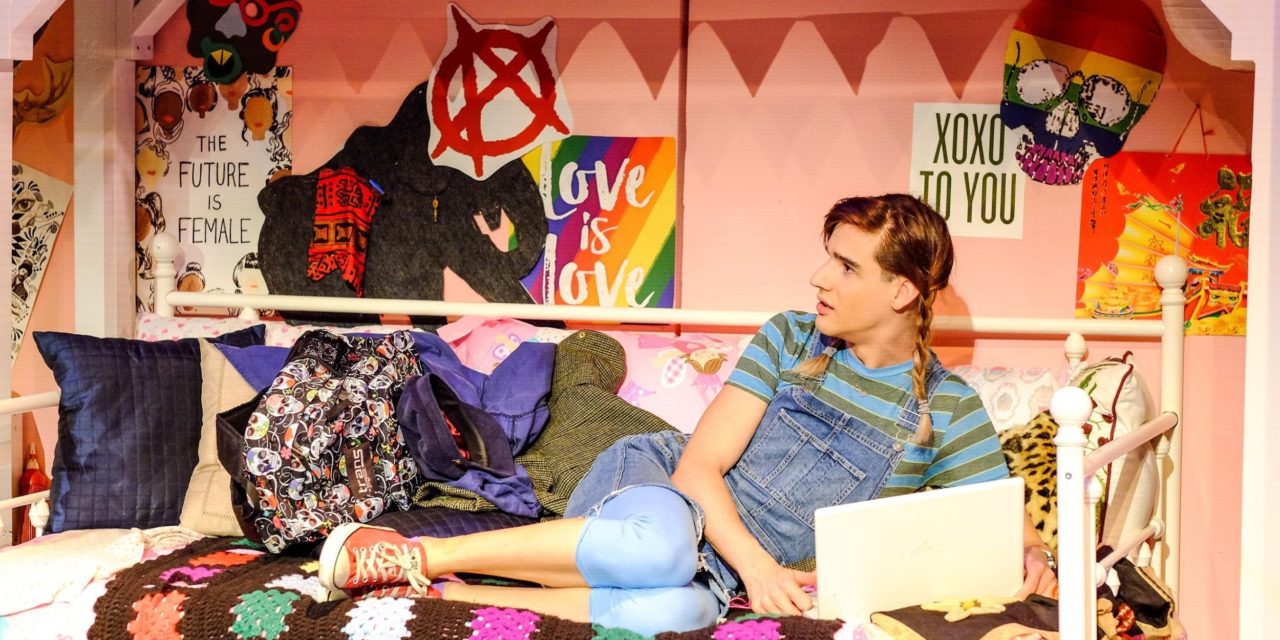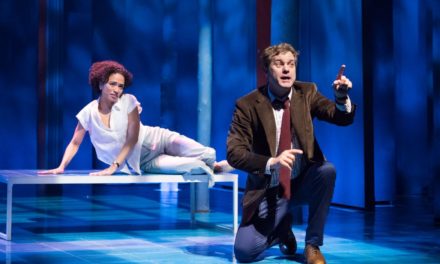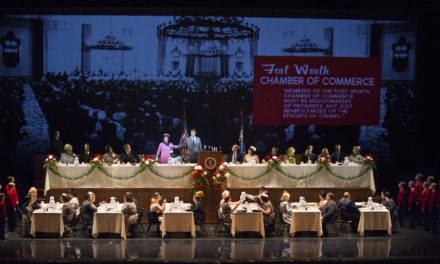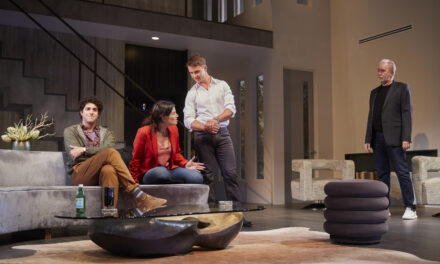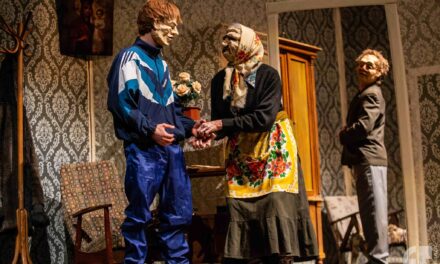Alexis Roblan graduated from the University of Southern California’s MFA in Dramatic Writing program and has been writing and self-producing ever since. Currently, she’s found a home as a playwright-in-residence for the Exquisite Corpse Company in New York and has had her work performed internationally. Earlier in 2018, she was awarded the Thomas Barbour Playwrights Award for her play The Andrew Play. Her most recent work, Red Emma And The Mad Monk, follows 12-year-old Addison as she begins to question different types of political action and one’s power against oppressive systems. It’s her first musical and New York Times’ Critic’s Pick. Roblan has also worked as a screenwriter for AwesomenessTV. Through the conversation, it’s clear that this success story has not been one of simply good fortune. Roblan is a driven individual with a strong work ethic and a passion for grappling with difficult questions.
HOW IT BEGAN
Growing up, Roblan dreamed of being a writer in some capacity, but by middle school, her focus had shifted towards acting. It wasn’t until her undergraduate years at USC that she dabbled in her first playwriting course. Then during Roblan’s senior year, she was auditing a graduate level playwriting class.
“The professor asked me to apply to the graduate program, and in all honesty, that’s when I started thinking about it!”
She applied to USC’s MFA program, and the road to playwriting begun.
Transitioning from a student playwright to the professional world was no easy feat.
“Honestly, it was pretty rough. I decided a few months out of grad school to move to New York and I literally knew two people. I spent the first year unemployed, living in a new city, and not writing.”
She’s not looking for pity, however, and quickly moves on to how she got back on her feet.
“It was honestly just a very slow process of starting to write again and slowly building a community here that’s almost entirely other theatre makers.”
Soon after, Roblan reconnected with a director she’d known at USC and they started a theatre company of their own.
“We took a show to Edinburgh Fringe, she recalls, “I think that was how I began to feel more like a professional theatre maker in this city.”
Although she has gotten some institutional support since that point, most of her work remains primarily self-produced. When I congratulate her on making a living this way, she quickly responds,
“Well… I’d say make a life, not really make a living.”
She’s not upset, however, and chuckles at this reality.
THE WRITING PROCESS
In the past, Roblan has been quite open about her experiences with existential anxiety and the visceral reactions she has to ideas. These experiences have influenced not only the topics she explores in her writing, but the order of her process as well.
“I spend a lot of time thinking about theme before I ever think about character or plot,” Roblan explains. “What I’m actually trying to do when I’m writing is find a way to make the audience experience the idea and the question in a way that feels visceral, theatrical, physical.”
For instance, the play she is currently working on has started with a title, a question, and a theme.
“I’m starting to write scenes, but the scenes aren’t attached to any people yet. That will start to transition into plot and story, but everything comes out of theme.”
Once a rough idea is in place, she turns to research for inspiration.
“Reading nonfiction really sparks my imagination,” she explains.
And most of the time, the inspiration grows so quickly that she writes scenes in the margins of the books she’s reading.
Her work as a whole has branched off from American realism into what’s currently considered experimental here, but normal in much of Europe. Though she sees a place for realism, she believes absurdity is theatre’s strong suit.
“When I see something that is entirely realism, even if I think I should like it and I don’t have any criticisms of it, I find that I don’t have an emotional way in, because it doesn’t actually feel real to me.”
Roblan laughs, recognizing the irony of her statement. However, she acknowledges the limitations in referring to her work as experimental.
“It’s funny, I know a lot of playwrights who I would consider much more experimental than me. I do recognize that there is a fundamental traditionalism to the kind of writer I am, even if I’m not interested in naturalism.”
Most of her work has also been described as dark comedies.
“I think it’s the only thing that feels honest to me,” she reflects.
Interestingly, it’s not an intentional decision.
“The way [I] deal with the absurdity and terror of life is often through laughing about it, so often when characters get into those places, humor just comes out as well.” She jokes, “it’s probably just how I see life.”
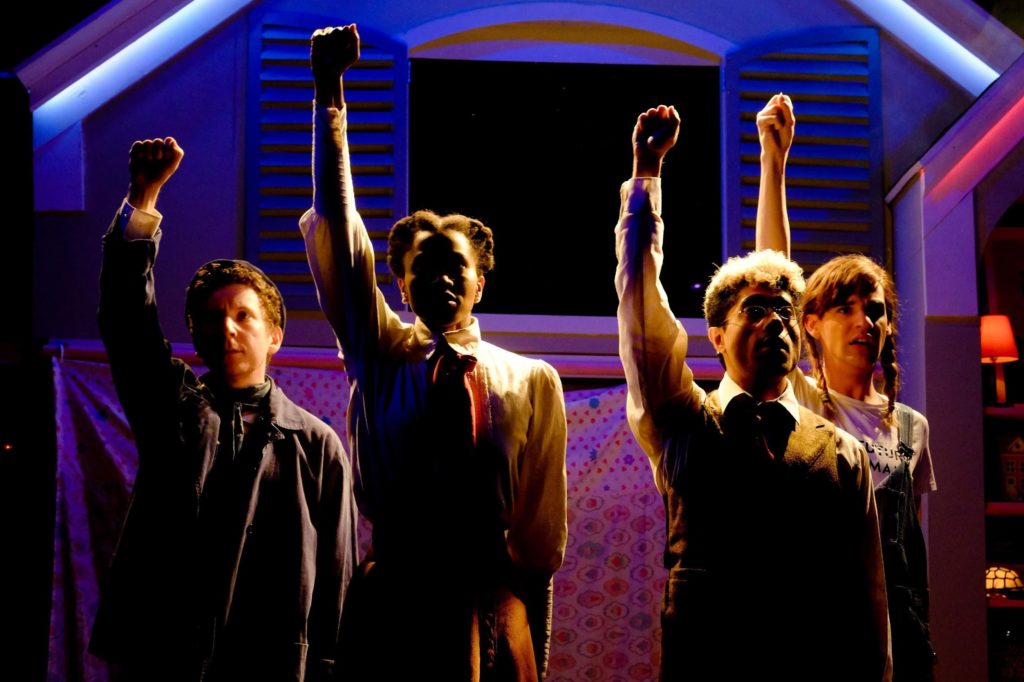
Photo by JJ Darling
ON RED EMMA AND THE MAD MONK
Her most recent work Red Emma And The Mad Monk, follows the story of Addison, a 12-year-old girl, who loves debating with people on the internet. Her imaginary friend is also none other than nineteenth century Rasputin. However, after learning about Russian anarchist Emma Goldman, she begins to reconsider what political action truly means and what it’s capable of.
THE MUSIC
Although it is a musical, her writing process did not start that differently.
“I just wrote it like a play, honestly,” Roblan admits.
When co-creator Katie Lindsey and herself were pitching the play, they realized they’d have a better chance if it were a musical and asked Teresa Lotz to sign on as the composer. Once the pitch was successful, Roblan quickly wrote lyrics into scenes that “felt like they were opportune for songs.” She and Lotz developed them from there.
“The only difference was the dialogue had to rhyme,” she jokes.
While Roblan’s experience as a lyricist might have been lacking, her passion for music, as well as her composer, guided her through.
“I have always really loved music. But I have never been a huge musical person, except for being obsessed with Rent and Phantom Of The Opera. I discovered there was a lot about lyric writing that I didn’t know.”
She expresses how grateful she is for Teresa Lotz.
“What was really exciting was working with a composer who was very open and generous. The amazing thing is that I would write these lyrics and she would work to put them in a song, even if they did break song structure. Then we would talk about where I might need to change things. There was just a lot of trust in the collaboration.”
THE CONCEPT
The show combines the Russian Revolution and today’s internet society. While this may seem unexpected, Roblan found parallels during the 2016 election that galvanized this pairing.
“The theme [Lindsey and I] were interested in and the questions we were coalescing around were, ‘What was the difference between writing on Facebook and going on a march? Aren’t they both speech? What do any of these things actually do?’”
Then, one of Roblan’s friends told her about Emma Goldman: a Russian American who planned an assassination attempt while running an ice cream shop.
“That just seemed so perfect to me! There’s something so modern about this idea of being so far away from something, but you’re trying to impact it because you’re seething with rage, sitting in your apartment reading about it.”
The addition of Rasputin came from Roblan’s own obsession with him as a young girl.
“I had to do this project in school…and I just remember I made a giant pastel portrait of him. I have these vivid memories of just redoing his eyes over and over again, because I couldn’t get them right!”
Lindsey decided that both Rasputin and the twelve-year-old girl Roblan described had to be a part of the show, and thus, the concept of the play was born.
During the writing process, it was important for Roblan that the relationship between Rasputin and Addison accentuated the political awakening that occurs at a young age. While Addison is liberal, Rasputin was against anyone who opposed the autocracy of the time.
“The conflict arises because she’s starting to have a sense of her own understanding of politics and they conflict with her relationship with her friend. You have these people that you love so much on this purely emotional level that sometimes are in conflict with the person you want to be.”
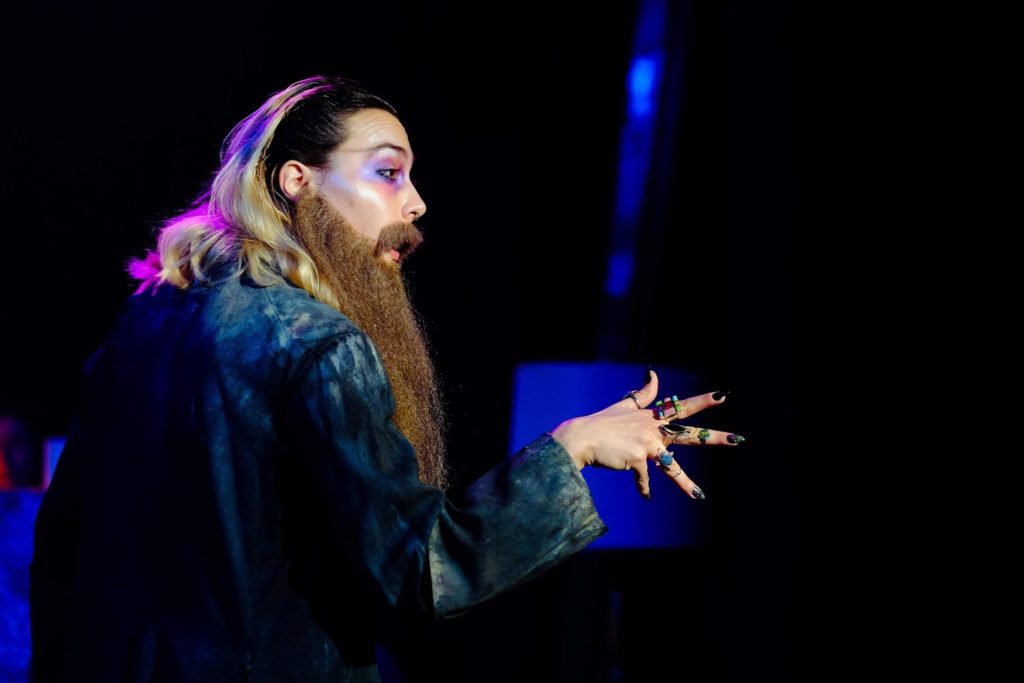
Photo by JJ Darling
Roblan can’t help but chuckle when she recalls the decision to have Rasputin portrayed by a woman wearing holographic makeup and a long beard.
“When we were writing the pitch, [Lindsey] was like, ‘Rasputin has to be played by a woman.’ I was like, ‘Sure that seems right!’”
And that was the end of it. Since then, however, the meaning has developed.
“I think what it did do is open up, aesthetically, this whole world for the play. We’re living in a world in which all of us are parts of these questions and stories, regardless of things like race, gender, or any kind of identifier that you might have. It takes it out of this literalism that I think would suffocate the story.”
By the end of this story, she hopes to leave the audience with these questions:
“Who do you want to be and what are you going to do in this moment?”
She continues, “I want them to meditate on the fact that your ability to ask that question of yourself is being manipulated. The play ends with Vladislav Surkov basically telling the audience that if you decide not to believe in anything and keep everyone else from believing in anything, you can do whatever you want. Then he puts a bomb in his mouth and that’s the end of the play. I guess I’m trying to leave the audience with this meditation on the forces that are trying to blow up the world right now. You’ve been trying to follow these different versions of activism, but maybe the most effective version of activism in our current world is this version of power-hungry nihilism, represented by the Trump Administration, which has a greater effect but is entirely nihilistic,” she scoffs at the thought.
GOING FORWARD
Roblan’s artistic impulse has always been to deconstruct. However, during the process of creating Red Emma, she felt that the deconstruction in the world requires more acts of creation. Will this influence her writing going forward? Yes and no. She makes it clear that the two are not mutually exclusive.
“I don’t necessarily feel like I need to stop deconstruction in order to value creation. It was just this overwhelming feeling that the creation of art itself feels really powerful and positive, even when it’s trying to have a difficult conversation. I just haven’t given that enough weight in my life, honestly.” She pauses. “That was a moment where I was really, deeply feeling that it is very important for us to build communities of people that are focused on the creation of something that we can make as a collective and with audiences. A play doesn’t actually exist until the audience is in communication with it as well, so it’s just this constant act of creation.”
Within this community, she is also conscious of her role as a female playwright.
“I always have trouble casting men in things. I know so many actresses, because a lot of my work has a lot more women in it. I personally think that’s a very practical way in which it’s important.”
However, Roblan shifts to shine a light on what she considers an even bigger issue.
“Even as women are making a lot of gains as writers, I think it’s harder for female directors, because that’s the person that’s actually in charge of the process and of the room. There’s more conflict that arises, in my opinion, from people not trusting women to be in that role.”
Because of this, as well as the feminine experiences she often writes about, she supports fellow women with directing opportunities. Her goal is simple: use her position to help gender representation.
“It’s important to create a sense of gender diversity within the landscape of these communities that we’re building. Whether that’s playwrights, actors, or directors. The more of that that can be created, the better.”
Roblan has been driven by societal issues, themes, anxieties, difficult questions, and the hope of evoking change. However, what brings her back time and time again is the magic that occurs when the writing comes alive in the rehearsal space.
“I heard a playwright in an interview once say that playwriting is the most intimate thing you can do, because once you’re in a rehearsal room, other people are working to fully embody your most intimate personal thoughts, and I totally feel that.” She pauses, and I can almost hear her smiling. “The second I was in a rehearsal room as the playwright, I was like, oh, this is what I’m doing for the rest of my life.”
This post was written by the author in their personal capacity.The opinions expressed in this article are the author’s own and do not reflect the view of The Theatre Times, their staff or collaborators.
This post was written by Grace Power.
The views expressed here belong to the author and do not necessarily reflect our views and opinions.

